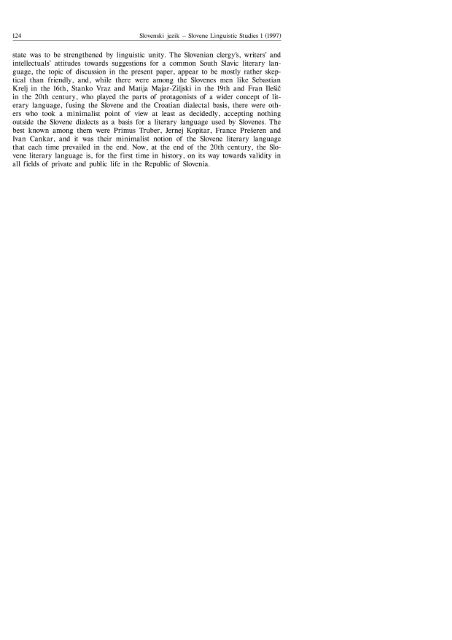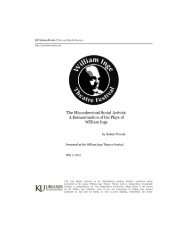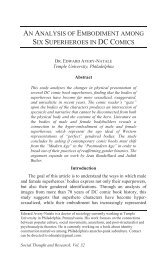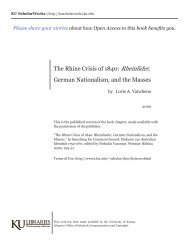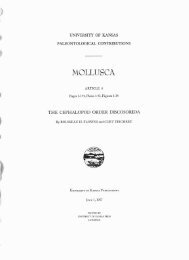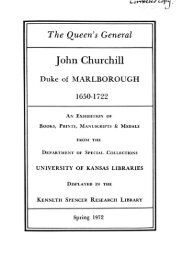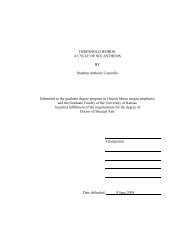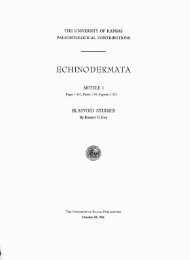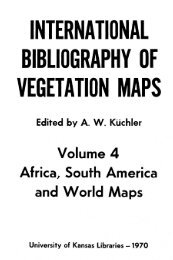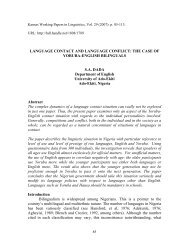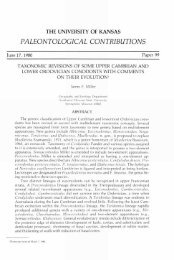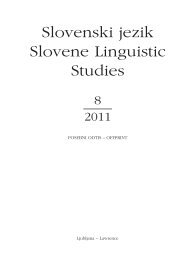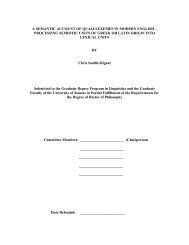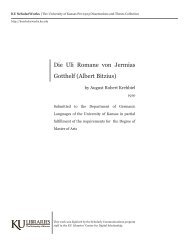View - KU ScholarWorks
View - KU ScholarWorks
View - KU ScholarWorks
Sie wollen auch ein ePaper? Erhöhen Sie die Reichweite Ihrer Titel.
YUMPU macht aus Druck-PDFs automatisch weboptimierte ePaper, die Google liebt.
124 Slovenski iezik - Slovene Linguistic Studies 1 (1997)<br />
state was to be strengthened by linguistic unity. The Slovenian clergy's, writers' and<br />
intellectuals' attitudes towards suggestions for a common South Slavic literary language,<br />
the topic of discussion in the present Paper, appear to be mostly rather skeptical<br />
than friendly, and, while there were among the Slovenes men like Sebastian<br />
Krelj in the 16th, Stanko Vraz and Matija Majar-Ziljski in the 19th and Fran IleSii:<br />
in the 20th century, who played the parts of protagonists of a wider concept of literary<br />
language, fusing the Slovene and the Croatian dialectal basis, there were 0thers<br />
who took a minimalist point of view at least as decidedly, accepting nothing<br />
outside the Slovene dialects as a basis for a literary language used by Slovenes. The<br />
best known among them were Primus Truber, Jernej Kopitar, France Pregeren and<br />
Ivan Cankar, and it was their minimalist notion of the Slovene literary language<br />
that each time prevailed in the end. Now, at the end of the 20th century, the Slo-<br />
Vene literary language is, for the first time in history, on its way towards validity in<br />
all fields of private and public life in the Republic of Slovenia.


